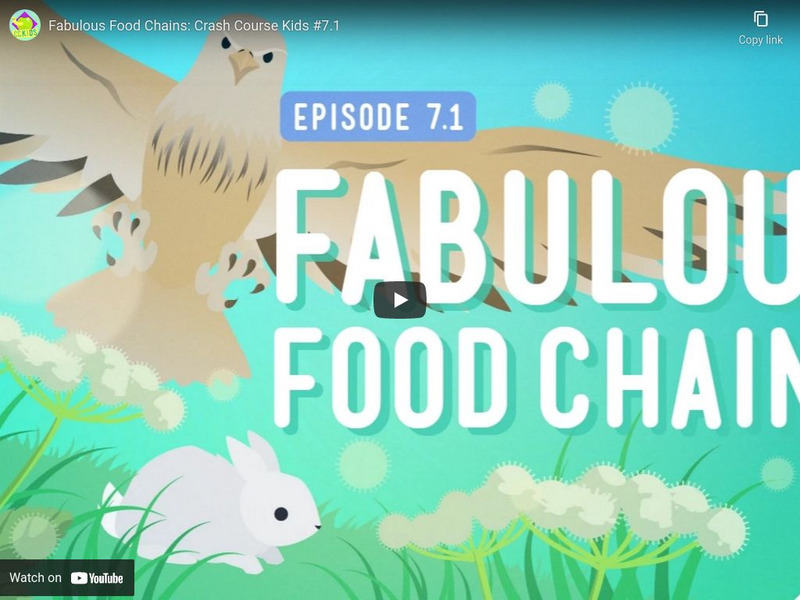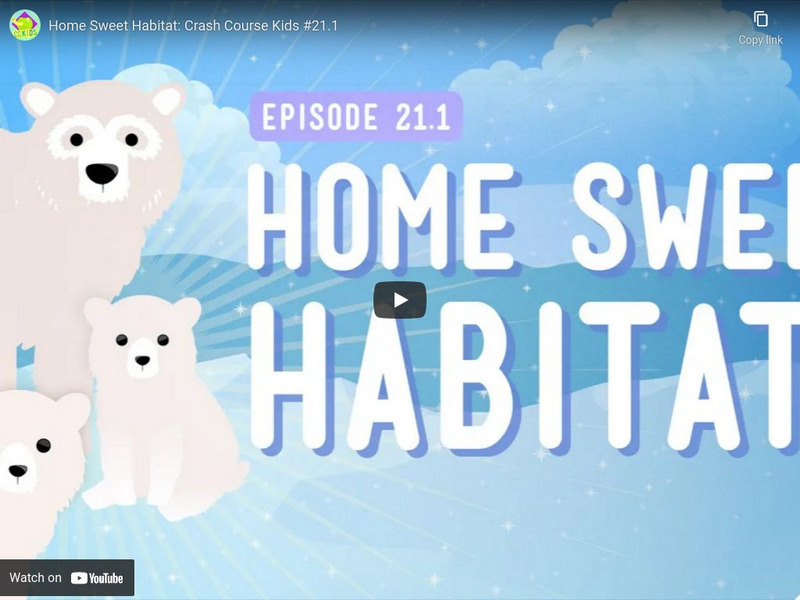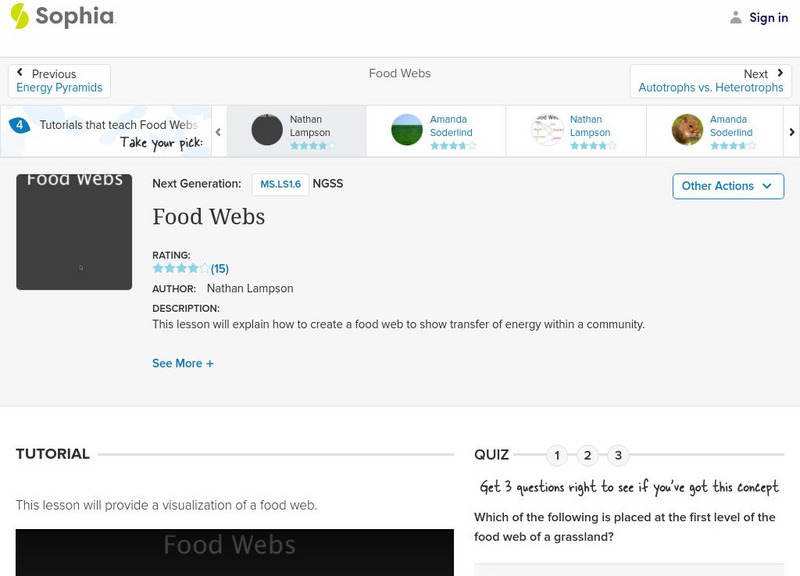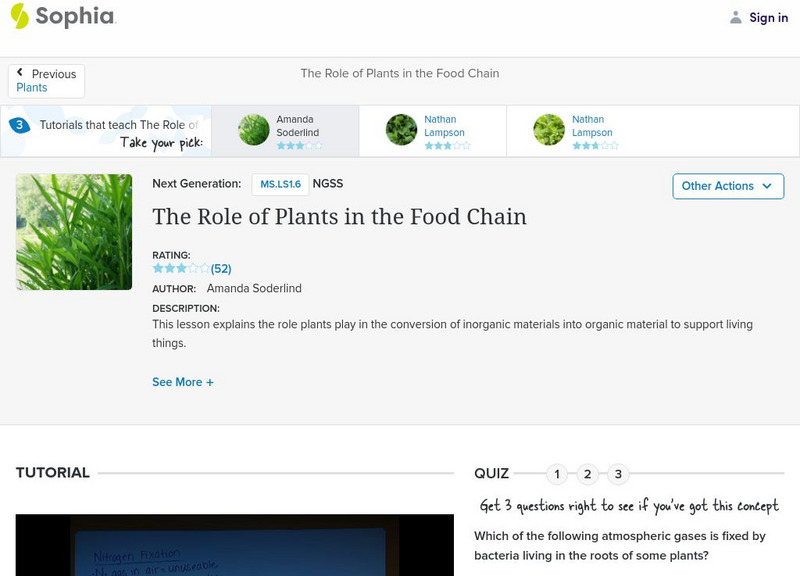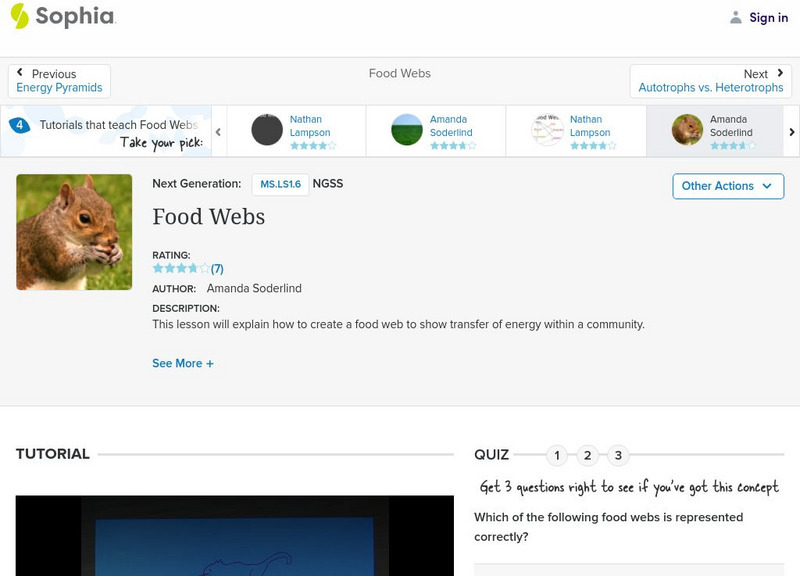PBS
Pbs Learning Media: Vulture: India's Clean Up Crew
In this video, students examine the role of vultures as scavengers, and explore the link between the vultures' niche and human health in India. [4:40]
OpenSciEd
Open Sci Ed: 7.4 Matter Cycling & Photosynthesis: Teacher Playlist
This teacher playlist demonstrates the Matter Cycling & Photosynthesis unit investigations where the students investigate the idea that all food comes from plants.
OpenSciEd
Open Sci Ed: 7.4 Matter Cycling & Photosynthesis: Student Playlist
This student playlist demonstrates the Matter Cycling & Photosynthesis unit investigations where the students investigate the idea that all food comes from plants.
PBS
Pbs Learning Media: Crash Course Ecology: Ecosystem Ecology: Links in the Chain
Hank brings us to the next level of ecological study with ecosystem ecology, which looks at how energy, nutrients, and materials are getting shuffled around within an ecosystem (a collection of living and nonliving things interacting in...
Crash Course
Crash Course Kids 7.1: Fabulous Food Chains
In this episode of Crash Course Kids, Sabrina talks about the way energy moves, or flows, through an ecosystem and how that movement forms food chains. [2:46]
Crash Course
Crash Course Kids 21.1: Home Sweet Habitat
How would a polar bear do if you put it in the desert? Not well. But why? Why can't anything live anywhere? Well, this has to do with habitats and how animals (including humans) are suited for living in one place over another. In this...
Crash Course
Crash Course Kids 21.2: Food Webs
Last time we put a polar bear in the desert and we still feel bad about that, but there's a lot more going on in ecosystems than just temperature. In fact, there are so many elements in ecosystems, that if just one leaves or gets out of...
The Kid Should See This
Tksst: Science Take: A Surprising Appetite for Dead Jellyfish
Based on recent marine studies, learn how scientists have been rethinking of the jellyfish's position in the food web. [1:34]
Make Me Genius
Make Me Genius: Life Cycle Video for Kids
Meaning of Life Cycle: It is the sequence of the transfer of food energy from one organism to another. A food chain begins with a producer, producers are eaten by primary consumers (called herbivores) which are eaten by secondary...
Khan Academy
Khan Academy: Ecology: Example Identifying Roles in a Food Web
See an example identifying roles in a food web. [2:11]
Khan Academy
Khan Academy: Ecology: Flow of Energy and Matter Through Ecosystems
Seeing how energy and matter flows and is recycled from primary producers (autotrophs) to primary, secondary and tertiary consumers. [10:25]
Sophia Learning
Sophia: Food Webs: Lesson 2
This lesson will explain how to create a food web to show transfer of energy within a community. It is 2 of 4 in the series titled "Food Webs."
Sophia Learning
Sophia: Producers and Consumers: Lesson 1
This lesson will review the difference between producers and consumers, and s(ow ho7 both play important roles in a food web. It is 1 of 4 in the series titled "Producers and Consumers."
Sophia Learning
Sophia: The Role of Plants in the Food Chain: Lesson 1
This lesson explains the role plants play in the conversion of inorganic materials into organic material to support living things. It is 1 of 3 in the series titled "The Role of Plants in the Food Chain."
Sophia Learning
Sophia: Food Webs: Lesson 4
This lesson will explain how to create a food web to show transfer of energy within a community. It is 4 of 4 in the series titled "Food Webs."
Sophia Learning
Sophia: Transition Markers: Lesson 1
A slide show about transitional words, phrases, and other markers followed by a three-question quiz to check for understanding. It is 1 of 2 in the series titled "Transition Markers."
Sophia Learning
Sophia: Autotrophs vs. Heterotrophs: Lesson 4
This lesson will review the difference between autotrophs and heterotrophs, and show how both play important roles in a food web. It is 4 of 4 in the series titled "Autotrophs vs. Heterotrophs." [1:21]



